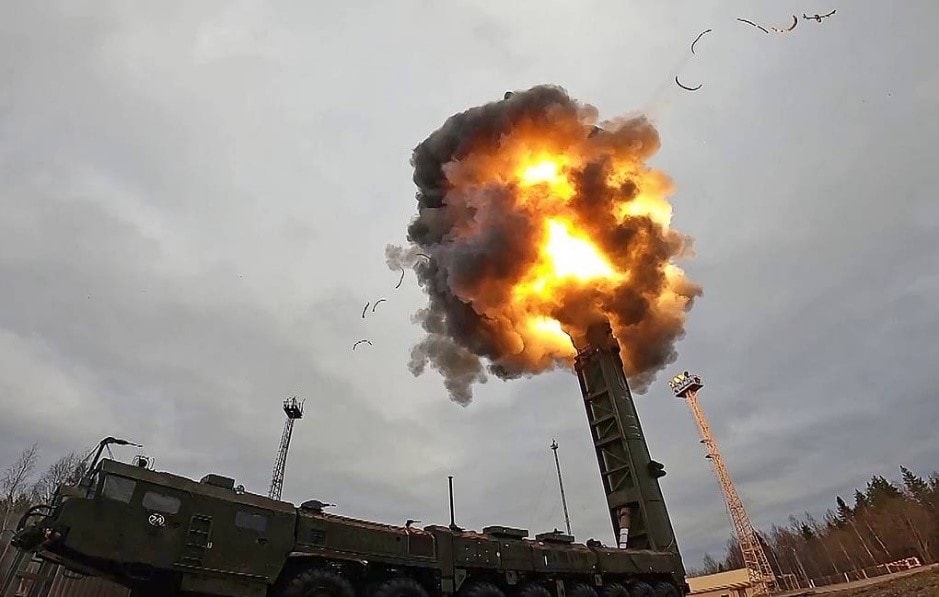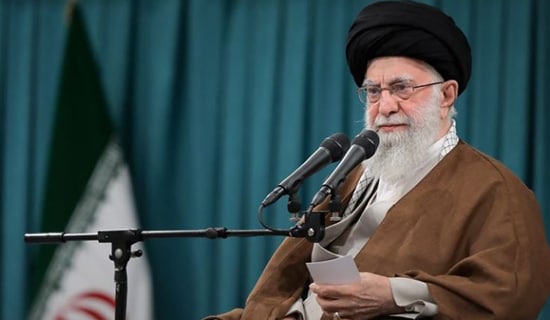In a recent article, Syrian columnist Muhammad Sayyed Rassas reviewed the U.S.'s situation in Afghanistan, comparing it to its situation in Iraq. He stated that since 2006, the U.S. forces in Afghanistan have been losing ground to the Taliban, and they have now reached a point where they are desperate to reach understandings with this movement at any cost. In his opinion, the Taliban's strength in Afghanistan stems from the fact that it has the support of the majority in the country, as well as the support of the Taliban in neighboring Pakistan; conversely, in Iraq the resistance is supported only by a minority, while most Iraqis have chosen to participate in the political process rather than to fight.
Rassas adds that the Americans' situation in Afghanistan is reminiscent of their entanglement in Vietnam, and wonders whether they will able to achieve a better outcome than they achieved in that war.
Following are excerpts from his article, which appeared on the website ahewar.org.[1]
No Invader Has Ever Managed to Hold On to Afghanistan
"After defeating the army of the Persian king Darius in 331 BC, Alexander the Great wrote a letter to his mother in which he described the resistance of the people of [the land] now known as Afghanistan. [He wrote] that they were 'brave and fought like the lions.' Although [many] conquerors, such as Genghis Khan and Timur, passed through Afghanistan, none of them could consolidate their control over that region. And even the Arabs, after conquering parts of western and central Afghanistan, soon saw many [Afghans] converting back to Buddhism. Islam never got a firm hold over the Afghans' hearts, except when it entered [the country] peacefully.
"When the British forces attempted to expand northward from India during the Anglo-Afghan wars of 1838 and 1878, they [too] were [eventually] driven back. During the first of these wars, the British forces took control of Kabul for four years, and in the second they failed to occupy Kabul at all, though they did manage to impose their patronage [over the country], and as part of this, the Afghan king agreed to let London manage his foreign policy. After the third war, of 1919, Afghan King Amanullah Khan announced that the consequence of the 1878 war [namely the British patronage] was at an end.
"Between 1979 and 1989, Afghanistan became a graveyard for the Soviet invader and a harbinger of the fall of the Soviet empire which Stalin had built since 1945. During that period, the Soviet occupation was unstable, because the resistance forces represented the majority of the Afghan society, while the local Communists who ran the Afghan government were facing their demise...
"Many thought that the American experience in the 2001 war in Afghanistan would be different from the Soviet experience, especially considering the weak resistance offered by the Taliban government forces... [Moreover], Washington managed to muster international support (Western Europe and even Moscow), as well as regional support (New Delhi, Islamabad and Tehran), and [even] local Afghan support – [namely that of] the Northern Alliance, which included groups of Tajiks (27 percent of the population), Hazara Shi'ites (9 percent) and Uzbeks (9 percent).
"[True,] the Americans failed to secure the support of the majority of Afghans, namely the Pashtuns, the tribe of Hamid Karzai, who had lived until 2001 in the United States. However, despite the situation with the Pashtuns, the Americans' position was stable from the day Kabul fell, on November 13, 2001, until March 2006. During that period, it was the situation in Iraq, following the occupation of Baghdad by Washington on April 9, 2003, which seemed most volatile and unstable, and President Bush [indeed] said in early 2006 that Iraq was 'the main issue.'"
Since 2006, the Taliban Has Taken over 80% of Afghanistan
"[But] in the spring of 2006, the Taliban turned active [and began to perpetrate] suicide attacks. In the following three years it gained control of more and more territory, eventually controlling 80 percent of Afghanistan, except for the cities (although in some provinces it demonstrated an ability to take over cities and districts for a few days, and then withdraw to the countryside and mountains).
"Iraq, [on the other hand] moved towards relative calm in 2007-2010, after the sectors supporting the resistance turned towards participation in the political process that was launched by U.S. administrator Paul Bremer through the creation of the so-called Governing Council in July 2003. Meanwhile, the 'quartet' (consisting of the Da'wa Party, the Supreme Council for the Islamic Revolution, and the two Kurdish parties led by Barzani and Talabani), [likewise] maintained the political process by representing the majority of Iraqi society..
"In Afghanistan, this [sort of calm] could not be achieved by either the Northern Alliance or by Karzai, in the years since 2001. In fact, the opposite is true: in the 2009 elections, the Islamic Society (which is the main Tajik organization) split into two [factions led by] General Mohammad Qasim Fahim and Dr. 'Abdallah 'Abdallah. This was a blow to the political process in the country, especially with Karzai unable to secure considerable support among the Pashtuns, and in light of the corruption, cronyism and alleged incompetence of Karzai and those around him.
"In Iraq, the failure of the resistance stems from the fact that its supporters represent a minority in society, and [moreover, this minority has] changed its stance since 2007. This was quite clearly reflected in the municipal elections of 2009 and in the parliamentary elections of 2010. The situation of the Taliban in Afghanistan is different, because throughout the years of U.S. occupation it has enjoyed the support of a large majority in Afghan society, namely the Pashtuns, and because [the camp of] its political opponents has disintegrated... A new factor [in its success] is that it has managed to secure very strong support within Pakistan, in the borderlands [controlled by] the Pakistani Taliban. In the past two years, [the Pakistani Taliban] has managed to corner the rulers in Islamabad, who since September 11, 2001 have chosen to follow Washington instead of their former ally, the Afghan Taliban.
"Against this backdrop, Washington has recently been making efforts – at least since the beginning of Obama’s presidency – to secure any [possible] political [agreement] with the Taliban... It is said that [various] forces in the region have been mediating [between the U.S. and the Taliban]... This reflects considerable American desperation regarding the political process in Afghanistan. [In contrast], the American negotiations with the Iraqi resistance in 2006-2007 were not serious, and afterwards Washington stopped being interested in [negotiating with the resistance at all]."
"Will the United States Avoid Repeating the Events of Saigon in Kabul?"
"In 1963, the year that witnessed the collapse of the 1954 Geneva Conference which led to the division of Vietnam, Washington faced a similar situation [in this country], with the outbreak of internal disquiet and the beginnings of armed socialist resistance against the pro-Washington administration of South Vietnam, headed by Ngo Ding Diem... Diem's assassination in the November 12, 1963 coup did not stabilize the situation in Saigon in any way that served Washington's [interests].
"The trouble in South Vietnam led to the [Vietnam War], with hundreds of thousands of American troops [deployed in this country] from August 1964 in an effort to prevent South Vietnam from falling to the Viet Cong and their North Vietnamese supporters in Hanoi. The regime of General Nguyen Van Thieu in Saigon could not provide the U.S. forces with very strong help during the war, [which ended with] the signing of the Paris [Peace Accords] in January 1973. [This agreement] set out [the terms of] the American withdrawal and set up a joint government of Van Thieu and the Viet Cong in Saigon. During the first four months of 1975 the fighting resumed in South Vietnam, and on April 30, Van Thieu's regime collapsed.
"Will the United States avoid repeating the events of Saigon in Kabul?"
[1] www.ahewar.org, September 29, 2010.








